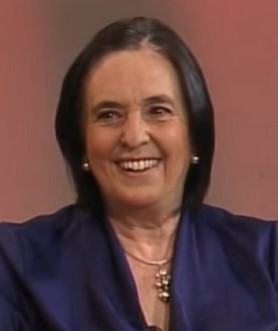
María Trigueros Gaisman
Benemérita Universidad Autónoma de Puebla, México
Abstract: The interaction between researchers and mathematics teachers with researchers in Mathematics Education has evolved since the creation of the latter some forty years ago. Researchers in this discipline have collaborated actively since the beginning of the discipline in the organization of programs for various pre-university and university courses, as well as in the training of mathematics teachers at levels prior to university. As the discipline has been consolidated, its role has changed in relation to the levels of basic and secondary education in which its intervention has been fundamental in understanding the mathematical needs of teachers and students. Its role at the university level, however, although it has evolved, has not done so quickly. University professors still distrust the mathematical ability of members of the Mathematics Education community and the introduction of ideas that arise from their research. However, the dialogue between mathematicians and researchers in mathematical research can be a source of enrichment of the programs, of the introduction of more interesting ways of teaching for students and of understanding of the difficulties that students face with the study of mathematics in the university to be able to help overcome them. Something that slows down the interaction between mathematicians and mathematics educators is, according to the former, the misunderstanding of the language of mathematics education and its objectives. In this presentation the basic elements of APOE theory will be presented. A theory developed by mathematicians and designed to improve the teaching of mathematics at the university level so that students learn mathematics in greater depth. A theory that allows designing teaching that has proven to be effective in different universities in different countries. The theory and its scope in practice will be exemplified through the discussion of results obtained in the teaching of Calculus and Linear Algebra at the university.
Semblance: María Trigueros is a researcher in Mathematics Education. She is currently a visiting professor at the Faculty of Physical-Mathematical Sciences of the Meritorious Autonomous University of Puebla where she develops research projects, directs postgraduate theses in Mathematics Education and currently teaches a seminar on APOE theory. She worked for 40 years at the Instituto Tecnológico Autónomo de México where she taught classes in different degrees including, in particular, Applied Mathematics, Actuary and Economics. She has also carried out important work in the coordination and delivery of teacher training courses in Mathematics teaching at different educational levels. She studied at UNAM, Mexico for a Bachelor's and a Master's of Science in Physics and a Doctorate in Education at the Complutense University of Madrid, Spain. She is a member of the Mexican Academy of Sciences and the National System of Researchers, in the latter, at level III. Her research topics include the use of technology in the teaching of Mathematics; and the teaching and learning of mathematics in the university. María Trigueros has participated in research with various groups both in Mexico and abroad, including Puerto Rico, Chile, Argentina, Peru, Brazil, the United States, Spain, and South Africa. She was a member of the RUMEC (Research in Undergraduate Mathematics Education) group where she worked with Dr. Ed Dubinsky. María has participated in the organization of international conferences such as the PME-NA, the Conference on Research in Mathematics Education at the University Level (CRUME) and the international network of researchers in the didactics of mathematics in the university (INDRUM) of which is now Chair of the Fourth international conference INDRUM 2022 that will take place in Germany in October 2022. Likewise, Dr. Trigueros has coordinated important projects for teaching mathematics and training teachers nationwide. She highlights the EFIT and EMAT Projects (Mathematics Teaching with Technology) and the Enciclomedia Project and she has also participated in curricular design projects for basic education in Mexico. Regarding her interest in the theories of mathematics education, María has collaborated, representing the APOE theory in a dialogue and in works with Mariana Bosch and Josep Gascón seeking possibilities of integration of elements of the Anthropological theory of Didactics, with Vivenç Font , Edelmira Badillo and Norma Rubio from the Ontosemiotic theory of the didactic, with Richard Lesh and Guadalupe Carmona from the Models and modeling position, with Dolores Lozano from Enactivism.